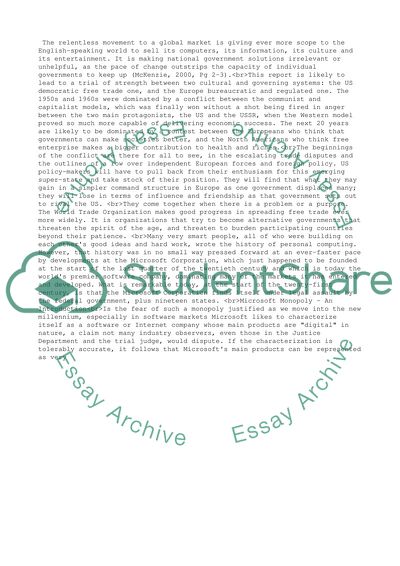Cite this document
(“Bill Gates Versus Brussels- The European Union Action On The Microsoft Essay”, n.d.)
Retrieved from https://studentshare.org/business/1530833-bill-gates-versus-brussels-the-european-union-action-on-the-microsoft-monopoly
Retrieved from https://studentshare.org/business/1530833-bill-gates-versus-brussels-the-european-union-action-on-the-microsoft-monopoly
(Bill Gates Versus Brussels- The European Union Action On The Microsoft Essay)
https://studentshare.org/business/1530833-bill-gates-versus-brussels-the-european-union-action-on-the-microsoft-monopoly.
https://studentshare.org/business/1530833-bill-gates-versus-brussels-the-european-union-action-on-the-microsoft-monopoly.
“Bill Gates Versus Brussels- The European Union Action On The Microsoft Essay”, n.d. https://studentshare.org/business/1530833-bill-gates-versus-brussels-the-european-union-action-on-the-microsoft-monopoly.


